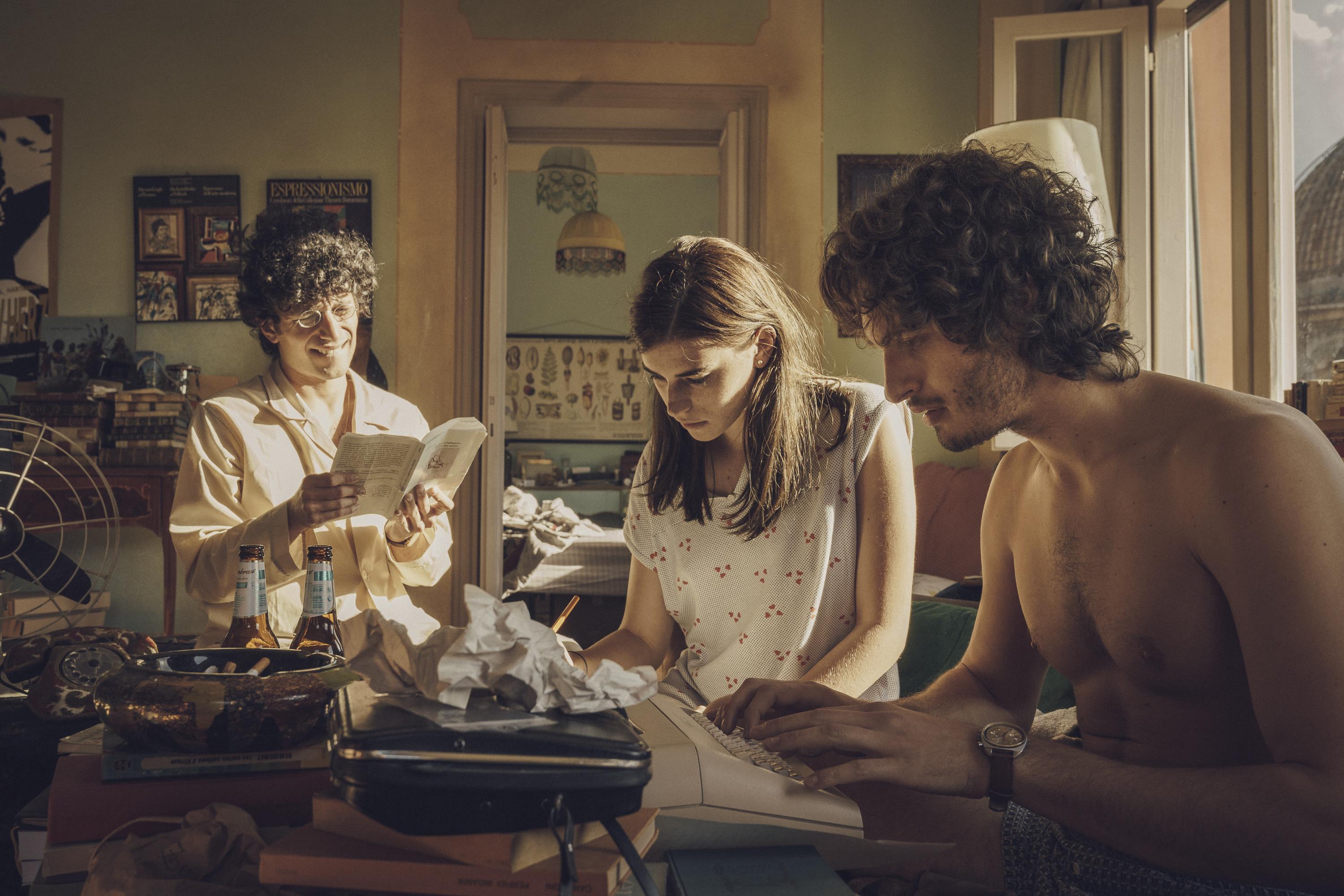Like clockwork, here’s the new film by Paolo Virzì. A mix between a virulent j’accuse of Italian cinema (yesterday’s? today’s?) and a personal Amarcord, Notti Magiche (Magic Nights) seems like a usual Virzì product, with a touch of his unmistakable cheesiness.
Let’s see what Sofia Brugali and Margherita Fontana think of it.
Notti Magiche – as seen by Sofia Brugali
With his new comic crime drama, Paolo Virzì carries us to his world made of big dreams and bittersweet realities. The set is the one of Rome in 1990, in which people are full of hopes because of the World Cup and they are caught by the TV-screens during the “magic nights” in which Italy plays its matches. In this huge stage, we follow the extraordinary adventures of three young aspiring screenwriters, each one with his/her own strong personality: a rebel Tuscan, secretly touched by his father’s death; a erudite and clumsy Sicilian and a Roman burgeois in conflict with his dad and addicted to various drugs. The story starts at its epilogue: it is the third of July, the date in which every ambition of the Italian population comes to an end with the defeat against Argentina and the protagonists’ dream of working in the movie business dies, as the producer Leandro Saponaro, whose car falls in Tevere in an action movie-like scene. This expedient creates two different stage realities: one set in the present, in which the three young persons, charged with Leandro’s death, recall the events in front of an audience made of policemen and the other one set in the past, the one of the youngsters’ tales, in which the aspiring screenwriters become actors, from their arrival to Rome as finalists for the best script in the Solinas Award, through their frustrating experience of the film world, to their disenchantment and their decision to leave their initial projects. At the end of the movie, the double perspective is overcome first by the police chief, who from spectator becomes critic, then by a journalistic look into the future of the three characters, whose lives have gone on despite their disappointment, marked by the short-but-intense moments they lived together.
Notti Magiche – as seen by Margherita Fontana
After his American interlude with The Leisure Seeker, Virzì comes back to Italy to make an appeal (and a reproach) to the filmmakers’ generation to which he belongs (and from whence he comes). Rome, 1990: the Magical Nights (Notti magiche) are the ones of the World Cup sang by Gianna Nannini and Edoardo Bennato. In front of a kiosk alongside the Tiber, everyone is so glued to the TV for the infamous semi-final Italy-Argentine, to the point of barely noticing that a car has just fallen into the river (here’s an evident metaphor of the intertwining of collective history and personal plot, something to keep in mind for the suite). In the vehicle, there is the dead body of the decayed producer Leandro Saponaro. On the basis of the allegations made by Giusy, ragazza coccodé and Saponaro’s lover, the police arrests the three young screenwriters, finalists of the Solinas Award, who spent with him the last fatal hours: Eugenia, a rich (and complexed) Roman bourgeois, Luciano, a gross but talented boy from Tuscany, and Antonino, a sophisticated Sicilian. As the characters (or allegories of future cinematographic schools?) tell the story of their past month in Rome, the film describes their encounter with the world of Italian cinema, a geriatric house too busy fighting in the taverns to form a generation of heirs. Especially through the use of cinematography, Virzì suggests that what we witness isn’t a simple flashback, but rather a sophisticated device created by our young screenwriters to direct suspicions away. Everything we see stands for something else: Magical Nights is an articulated metaphor of (an) Italian cinema crisis. It’s raining quotations and references. Unfortunately the final result is a caricature which looks more as a two-hour inside joke, than a sharp satire (or a new Amarcord).









Commenti recenti